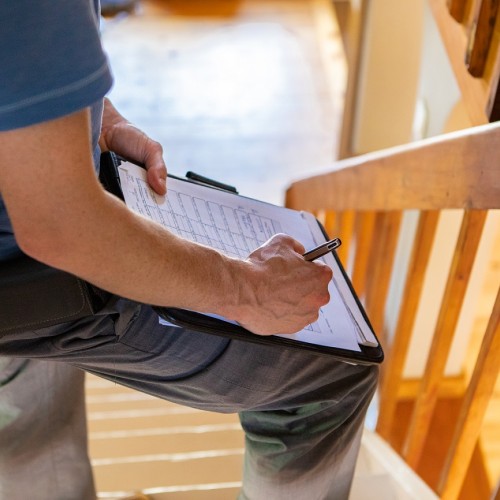What is a hidden defect, and what can you do about it?
Warm decor, plenty of light, perfect location, nearby school… After months of looking, you’ve finally found your dream home. It’s simply impossible to resist!
Many weeks go by, and you begin to notice water trickling into the basement. Worse, you realize the foundation is crumbling. You order an inspection, and the verdict falls: part of the foundation has to be rebuilt. The repairs will run between $10,000 and $15,000… assuming there are no other surprises. Also, the landscaping and French drain will need to be redone. Total nightmare.
Is it a hidden defect?
Before being hidden, a defect is simply a flaw that erodes the quality of a building. Certain flaws are tolerable, and mostly cosmetic. Others can prevent the owner from living in his house or condominium, or fully enjoying it.
If the buyer is made aware of a defect, even a serious one, it’s common practice for the seller to lower the price of a property, especially if a pre-purchase inspection confirms its existence.
It’s a different story with hidden defects. These are faults that are not apparent, and that not even an inspector would’ve uncovered. Worse still, a hidden defect might even be unknown to the seller! To be clear, a hidden defect must exist at the time the property is sold.
A few examples of hidden defects: the house was built on a bed of gravel made up of pyrite; there’s mould inside the walls; the foundation is crumbling, but the finished basement makes it impossible to see; the electrical wiring or certain pipes are defective; the house was used to grow cannabis; there’s a hydrocarbon contamination in the crawlspace where the oil tank used to be; the insulation has asbestos; etc.
Seller’s responsibility
In theory, all buyers are protected against hidden defects by law. Even if the seller is not aware their property has a hidden defect, they are responsible for them for life! However, if the defects are visible and noticed by the buyer or his inspector, or they are disclosed upfront to the buyer, the seller is no longer responsible. The same rules of hidden defects apply to condos.
If you discover a hidden defect, you must advise the seller as soon as possible through a formal notice sent by registered mail. If you do not receive acknowledgement of receipt, hire a bailiff. This formal notice describes the nature of the defect, the necessary work to repair it, and an estimation of the costs. You must give the seller a reasonable delay to take note of the damage and perform the repairs at his expense (by right of law). If the defect is affecting your security or could quickly deteriorate if you do not perform immediate repairs, this constitutes an emergency. You can begin repairs after advising the seller in writing.
A word of advice: get an inspection report that confirms the defect’s existence (especially if it’s an emergency), and keep your renovation bills. These documents will serve as proof if the seller refuses to pay for repairs, which is unfortunately quite common. You will then have no other choice but to claim your reimbursement in court.
Another tip: before launching a legal battle, try to settle amicably with the seller. These battles are expensive, and can stretch out over years. Lawyer fees, which range between $140 and $600 an hour, are non-refundable. We’re talking about a bill than can easily exceed $10,000, expert fees not withstanding.
Keys takeaways
- If a property is sold under judicial order (following a court order, for example), the hidden defect guarantee no longer applies.
- Purchase with no legal guarantee (or “at your own risk”): this is a clause in the contract stating you waive the right to any claims against the seller if you discover hidden defects.
- The seller legally cannot hide the existence of any defects he’s aware of from the buyer.
- Before buying, demand a pre-purchase inspection report and, if possible, all bills and guarantees pertaining to renovations or heating and cooling equipment.
- In most cases, you have three years after the discovery of a hidden defect to make a claim against the seller (rather than three years after purchasing the property).
- If the repairs give the property added value, a judge will take this into consideration and lessen the buyer’s claim accordingly.
- Accept the court’s mediation services before initiating a trial.

